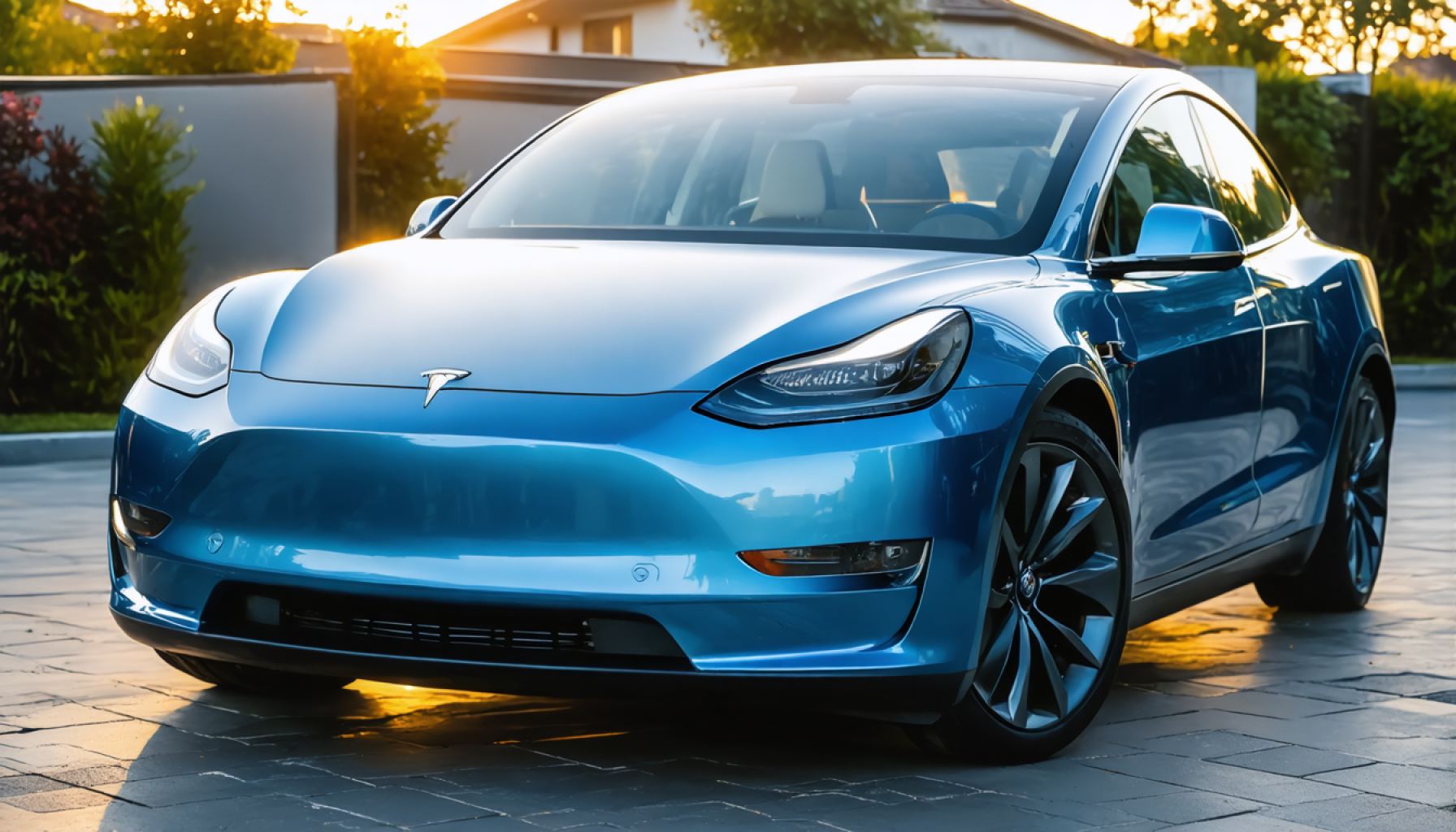- A record surge of over 13,000 used Tesla cars listed on Autotrader.com reflects a significant shift in consumer sentiment.
- Elon Musk’s political involvements may be influencing the decisions of previously loyal Tesla customers.
- In Q1 2025, U.S. electric vehicle sales increased by 10.6%, yet Tesla’s new car sales fell by nearly 9%.
- Competitors like General Motors and Hyundai are capitalizing on opportunities, with GM doubling its EV sales over the same period.
- The evolving EV market highlights dynamic consumer preferences and heightened competition among automakers.
- The potential impact of Tesla’s challenges raises questions about future brand loyalty and market position.
- The current scenario emphasizes the importance of adaptability in the rapidly changing electric vehicle market landscape.
A curious phenomenon is unfolding in the world of electric vehicles, where once-devoted Tesla owners are flocking to sell their cars in unprecedented numbers. In the final week of March, the number of used Teslas listed on Autotrader.com shot past a record 13,000, marking a stunning 67% jump from the same period last year. Such a dramatic spike in resale listings suggests a tectonic shift in consumer sentiment towards the iconic brand.
This surge appears to be partly driven by reactions to Elon Musk’s increasingly public political ventures, which have sparked global debate. As Tesla’s charismatic CEO ventures further into contentious political landscapes, he seems to be polarizing some of the brand’s loyal followers.
Meanwhile, data from Kelley Blue Book reveals an intriguing twist: although overall electric vehicle sales in the U.S. surged by 10.6% in the first quarter of 2025, Tesla’s new vehicle sales dropped nearly 9% from the previous year. Other EV makers, including industry giants like General Motors and Hyundai, have pounced on this opportunity. GM alone reported selling over 30,000 EVs in the same time frame, nearly doubling its sales compared to the previous year.
Yet, this is not just a story about shifting brand loyalties. It paints a broader picture of an evolving electric vehicle market landscape where competition is stiffening. New entrants and long-standing rivals alike are capturing the imaginations—and sales—of consumers with innovative designs and competitive features.
The key takeaway from this unfolding saga is a reminder of the market’s dynamic nature: consumer perceptions and loyalty are susceptible to a myriad of influences, from product offerings to the political platforms of brand figureheads. As the market for electric vehicles expands, each player must navigate these waters with astute awareness. For now, the question looms: will Tesla’s recent challenges mark a temporary blip or a pivotal turning point in the EV arena? The road ahead promises to be as electrifying as the vehicles it seeks to transform.
Why Are Tesla Owners Selling Their Cars? Insights into the EV Market’s Latest Trends
Understanding the Rise in Tesla Resales
The increased number of Tesla vehicles listed for sale presents an intriguing scenario in the electric vehicle (EV) sector. Beyond political controversies surrounding Elon Musk, several factors contribute to this trend. Some Tesla owners have grown dissatisfied with service issues, fluctuating vehicle prices, and limited model updates. Furthermore, traditional automakers and new contenders offer innovative features and appealing alternatives, enticing Tesla owners to explore other options.
Market Insights and Industry Trends
1. Consumer Behavior Trends:
– The shift away from Tesla doesn’t signify a drop in EV interest but rather a diversification of consumer choices. Brands like Rivian, Lucid Motors, and traditional automakers stepping into the EV space have expanded options.
2. Technological Advancements:
– Newer models from competitors bring state-of-the-art features such as advanced driver-assistance systems, improved battery technologies, and innovative designs that cater to varied consumer preferences.
3. Sustainability and Environmental Concerns:
– As environmental consciousness grows, consumers are opting for brands that demonstrate sustainable practices across their value chain, pushing competitors to enhance their eco-friendly credentials.
Comparison: Tesla vs. Emerging EV Rivals
– Features and Specs:
Tesla models still lead in some areas like autopilot capabilities and charging infrastructure. However, other brands are narrowing these gaps with fast-paced innovation and enhanced offerings.
– Pricing:
EV market diversification is bringing more competitive pricing to the table. With tax incentives and financing options, brands like Hyundai and Chevrolet are becoming affordable choices for consumers.
Pressing Questions and Answers
– How to Choose the Right EV?
Assess your needs concerning range, charging infrastructure, technological features, and budget. Consider taking test drives and consulting expert reviews for informed decisions.
– What Are the Future Predictions for Tesla?
While Tesla remains a formidable player, continuous innovation and strategic marketing will be crucial for maintaining its leadership. This is an opportune moment for the brand to reassess its strategies and align consumer satisfaction with technological evolution.
Actionable Recommendations for EV Buyers
1. Research Thoroughly: Investigate various models’ performance, features, and user feedback.
2. Stay Informed on Market Changes: Monitor EV tax incentives, charging networks, and technological breakthroughs.
3. Evaluate Long-Term Benefits: Consider resale value, maintenance costs, and the environmental impact of your purchase.
Related Links
For further insights and comparisons on electric vehicles, you might want to explore:
Tesla
General Motors
Hyundai
As the EV market electrifies, your decision should reflect personal preferences and align with evolving trends. Stay informed and proactive in this rapidly changing environment.
